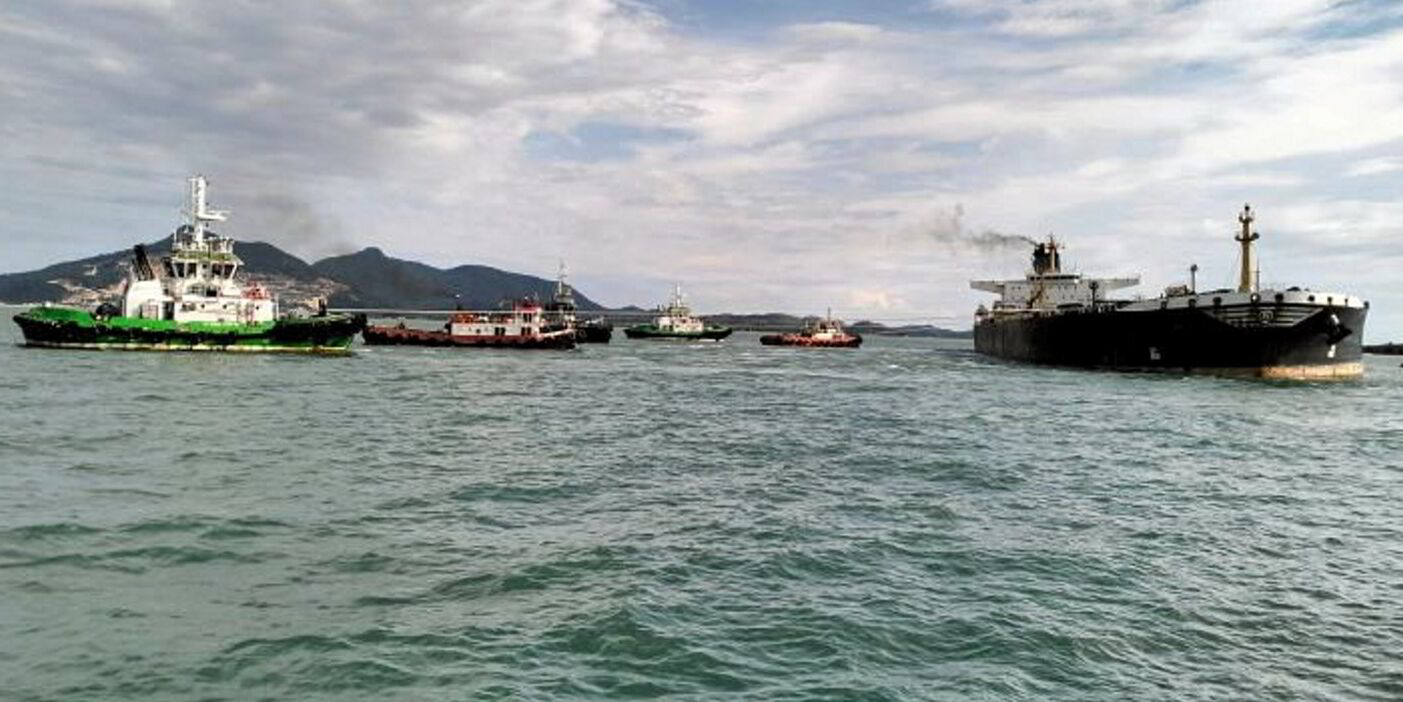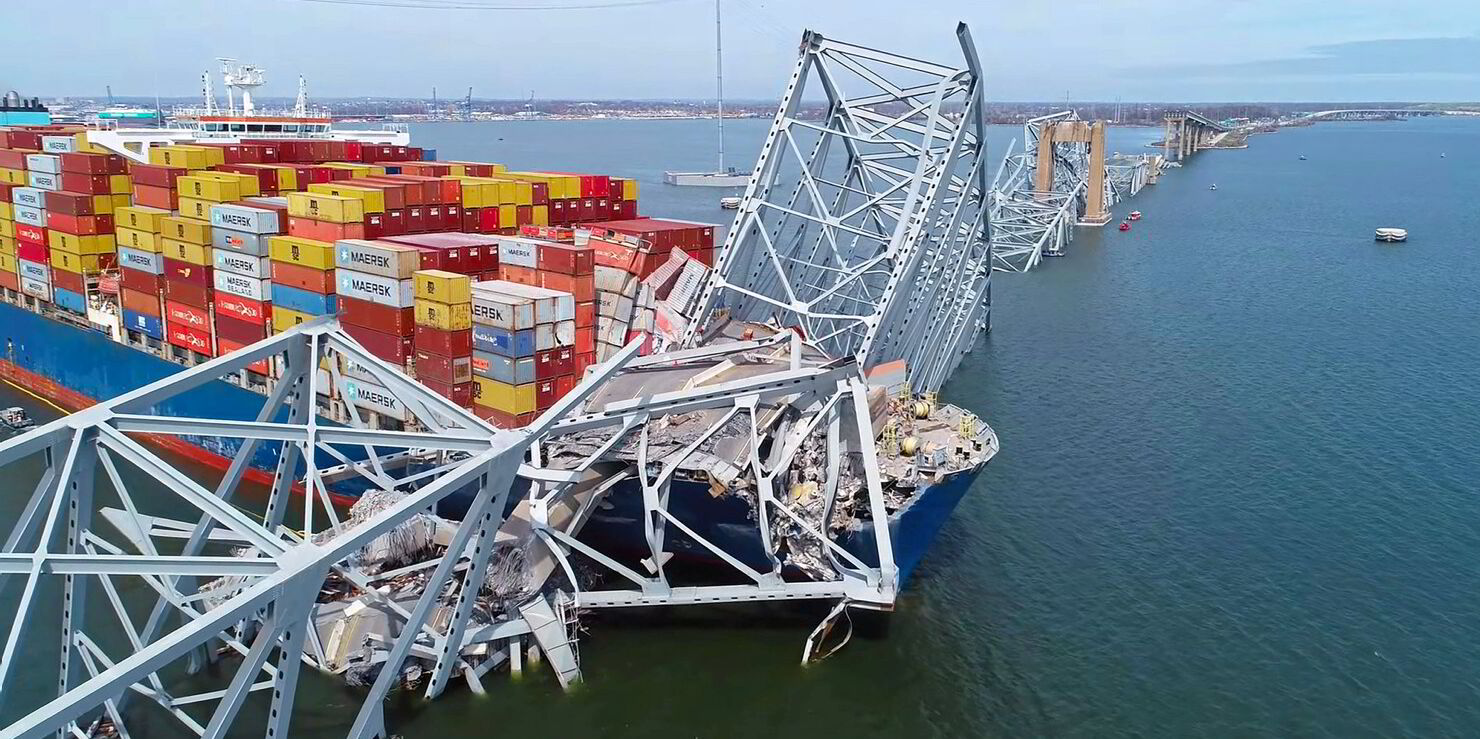A tanker that ran aground with a cargo of sanctioned Venezuelan crude has switched to hauling Russian oil around the coast of Europe despite questions over its insurance status.
The Cameroon-flagged 160,240-dwt Liberty (built 2000) ran aground off the coast of Indonesia for more than a week in December with an oil cargo loaded from Venezuela while transmitting a false position off West Africa, according to maritime intelligence company Pole Star.
The US company said the ship is believed to have had protection and indemnity cover at the time with a Marshall Islands-registered insurer of the shadow fleet.
The Continental Steamship Owners Mutual Protecting & Indemnity Association was “forcibly dissolved” by local authorities later that month for violating company formation rules.
Continental still has an active website but does not list any vessels it covers. It was not immediately clear if Liberty remained on its books.
Ship ownership database Equasis does not include insurance information on the vessel and it does not feature on the database of the International Group of P&I Clubs.
Continental did not respond to email requests for comment and its phone lines were down.
The Liberty, subsequently renamed Vernal, has lifted three cargoes from Russian ports this year, according to Kpler ship tracking data.
The Vernal loaded the first two cargoes from floating storage in Russia’s far north before steaming around northern Europe, entering the Mediterranean Sea and delivering its cargo to India via the Red Sea.

The final loading from Primorsk saw the suezmax tanker pass through the Danish Straits and the English Channel before passing through the Suez Canal. It was stopped Wednesday off the Oman port of Sohar, according to the tracking data.
Politicians in Scandinavia have repeatedly raised concerns about the possibility of a casualty involving inadequately insured vessels passing close to its coastlines.
The registered owner of the Vernal changed after the grounding off Indonesia. It is now listed under a single-ship company based in the Seychelles, where its commercial manager, Enchanted Echo Corp, is also based, according to Equasis. The technical manager is listed as Aerials Shipmanagement Corp in Kazakhstan.
Enchanted Echo could not be reached for comment. Phone calls were unanswered at Aerials and the company did not respond to email requests for comment.
Pole Star said it has identified more than 20 ships that had cover supplied by Continental.
The cover provides only a “veneer” of legitimacy that allows the tanker to continue trading and enter ports, said David Tannenbaum, a former US sanctions official and consultant who has worked with Pole Star to draw up a watchlist of 1,000 high-risk vessels.
Legal jeopardy
“Our big fear … is if Indonesia had to clean up a $2bn oil spill on their own dime who would they turn to for reparations?
“It would likely be the banks that might have issued a letter of credit, commodity traders that touched it, shipowners and charterers.
“All these other players in the maritime industry would then be placed at great legal jeopardy for potentially billions of dollars of lawsuits based on the actions of these high-risk enablers”.
The insurer, which has an Estonian contact number, had also covered two tankers hit by sanctions and others known to European authorities for illicit ship-to-ship transactions, Pole Star said.
They include the 106,500-dwt aframax Robon (built 1997), which was one of the first four tankers blacklisted by the UK in June.
Bloomberg reported the Robon to have been involved in an STS transfer of Russian oil in 2023 while spoofing its position under its former name, Turba.
A second ship involved in the transfer, the 164,286-dwt product tanker Simba (renamed Odune, built 2002), was also on the Continental roster, according to Pole Star.
In March, the Robon was identified at the International Maritime Organization as a symbol of a poorly regulated shadow fleet tanker during discussions about the growing risk of an accident involving poorly maintained tankers.
Now named Bodhi, the tanker has hauled Russian oil this year but has been at anchor in Ust-Luga since being designated by the UK.
The trading patterns of the Vernal highlight how sanctions programmes have created openings for shadow fleet service providers — dubbed high-risk enablers by Pole Star — to provide the paperwork that allows the vessels to continue operating.
They are aided by fringe flag registries that risk being targeted by the US sanctions regulator, the Office of Foreign Assets Control, said Tannenbaum, who runs sanctions consultancy Blackstone Compliance Services.
“I would not be surprised if certain flags are either on the chopping block for being designated or have probably already had very uncomfortable conversations with Ofac,” he said.
Read more
- Russian LNG carrier shadow fleet snaps up first newbuilding
- Shadow fleet tanker hit list: Ukraine researchers finger dozens of Russia-trading ships for sanctions
- Second shadow LNG carrier loads at sanctioned Russian plant
- Shadow fleet VLCC hit-and-run resurrects oil spill ghosts for shipping
- Fire-ravaged hull of shadow fleet VLCC revealed after collision with Hafnia tanker







